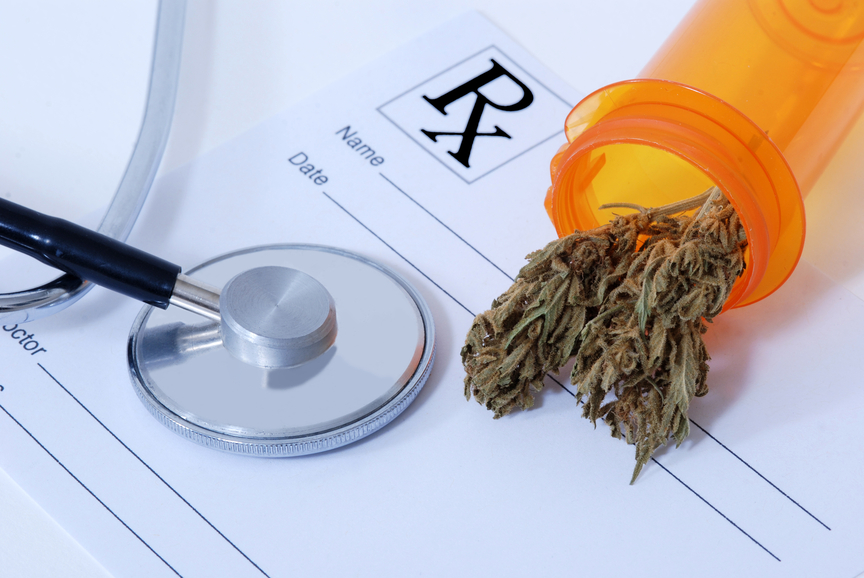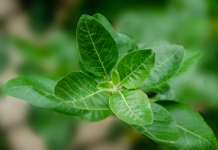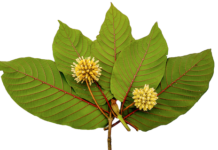by Dr. Craig A. Maxwell
“The Most Important Vegetable on the Planet is Illegal.” – William L. Courtney, MD – Dietary Raw Cannabis Specialist
In 1936, a propaganda film called “Reefer Madness” took theaters by storm in its attempt to convince teens and young adults of the day that if they smoked marijuana, they would be driven into psychotic madness before taking their own lives.
For some, the idea of medical cannabis use is still unattractive, conjuring up images of modern-day hippies claiming a medical condition as an excuse to get high.
Despite the fact marijuana has been largely vilified by the media, a surprising 85-95 percent of Americans are in favor of using medical cannabis as an alternative medical treatment.
Why Medical Cannabis Isn’t the Same as “Smoking a Joint”
When left to grow naturally, cannabis contains high amounts of cannabidiol (CBD), which offers powerful anti-spasmodic, anti-epileptic, anti-anxiety, anti-inflammatory, and anti-psychotic properties.
The medicinal use of this plant dates back to the times before Christ. It was only at the height of the psychedelic ’60s and ’70s that the plant was altered and changed. Within a short amount of time, the medicinal CBD was virtually bred out of the plant while psychoactive tetrahydrocannabinol (THC) was enhanced.
In 2009, physicians in California and other groups throughout the world were unsure if they would be able to find any more CBD-rich strains. As it turned out, there were a few left.
Now, plant genes that haven’t seen the light of day in over 35 years are being salvaged, harvested, and used for medicinal purposes!
Medical Cannabis Safer Than Pharmaceutical Drugs
According to the Journal of the American Medical Association[1. http://www.jhsph.edu/research/centers-and-institutes/johns-hopkins-primary-care-policy-center/Publications_PDFs/A154.pdf], two-hundred and ninety people in the United States are killed by prescription drugs every day.
Disorders Treated by Medical Cannabis
Medical cannabis is often used as a last-resort option for a variety of physical and mental health conditions.
These include:
- Autoimmune Disease
According to an article published in Science Daily[2. http://www.sciencedaily.com/releases/2014/06/140602150914.htm], the THC content in medical marijuana can suppress the body’s overactive immune functions. The recent findings show that THC can change critical molecules of epigenome called histones, leading to inflammation suppression.
- Cancer
According to many studies, including one published in the Journal of Molecular Cancer Therapeutics[3. http://www.ncbi.nlm.nih.gov//18025276], cannabinoids hold great promise in down-regulating, or halting, the growth of human cancer cells.
Medical cannabis is also widely used to control the nausea and vomiting often associated with chemotherapy.
- Multiple Sclerosis
According to a randomized, double-blind, placebo-controlled study published in the Journal of Neurology[4. http://www.neurology.org/content/65/6/812.short], patients with multiple sclerosis experienced neuropathic pain reduction and improved sleep quality while using cannabis-based medicine (CBM).
- Post-Traumatic Stress Disorder
Medical cannabis appears to reduce the fear, anxiety, paranoia, and rage associated with PTSD.[5. http://www.ncbi.nlm.nih.gov/pmc/articles/PMC3739026/#!po=3.33333]
- Schizophrenia
Although the use of marijuana has long been associated with worsening the symptoms of schizophrenia, new studies are emerging to suggest medical cannabis may actually alleviate symptoms of the condition by increasing serum anandamide levels.[6. http://www.nature.com/tp/journal/v2/n3/abs/tp201215a.html]
Side Effects of Pharmaceutical Drugs Versus Medical Cannabis
- Corticosteroids
Corticosteroids, often prescribed for chronic pain and autoimmune conditions have been associated with gastrointestinal ulcers, bleeding, chronic infection due to long-term immune suppression, extreme weight gain, high blood pressure, high blood sugar, osteoporosis, and significant mood changes.
- Narcotic Pain Relievers
“The current statistic is that about 16,000 people a year die of overdoses involving prescription narcotics.” – New York Times reporter Barry Meier, author of “A World of Hurt – Fixing Pain Medicine’s Biggest Mistake”
Narcotic pain relievers are notorious for causing chronic constipation, effectively worsening your body’s toxic load.
These pain relievers have also been associated with respiratory depression, nausea, vomiting, delayed gastric emptying, immune system and hormone dysfunction, muscle rigidity, increased sensitivity to pain due to neurological dysfunction, and dependency.[7. http://www.ncbi.nlm.nih.gov/pubmed/19283975]
- Psychiatric Drugs
Psychiatric drugs have been associated with gastrointestinal discomfort, impaired nervous system function, weight gain, sexual dysfunction, psychosis, and suicidal and homicidal tendencies.
- Medical Marijuana
Just like any herbal remedy or natural supplement, medical marijuana does have some potential side effects associated with it. They are drowsiness, giddiness, dry mouth, increased hunger, and short-term memory loss which resolve after the effects of the plant have worn off.
“The Most Important Vegetable on the Planet is Illegal”
According to Dr. William L. Courtney, Dietary Raw Cannabis Specialist, an unheated cannabis plant contains no psychoactive properties and can be juiced along with other vegetables to improve the function of your immune system.
Click on the link below to learn how a young woman with multiple medical conditions achieved complete remission by using juiced raw cannabis leaf.
Because medicine is a function of policy, what can and cannot be classified as a medicine is determined by the Food and Drug Administration (FDA). Despite the fact 20 states are approved for the legal use of medical cannabis, its use is still very tightly controlled and highly-scrutinized.
A simple plant with this many medicinal benefits should not be kept in the dark, vilified, and persecuted. Bringing it out into the light of day and allowing it to be used as part of a responsible and ethical medical treatment would not only improve lives but the current state of our healthcare system.
Medical Marijuana is Not Available in Every State but You Still Have Options
Read Next:
5 Dietary Supplements Scientifically Proven to Ease Chronic Pain








